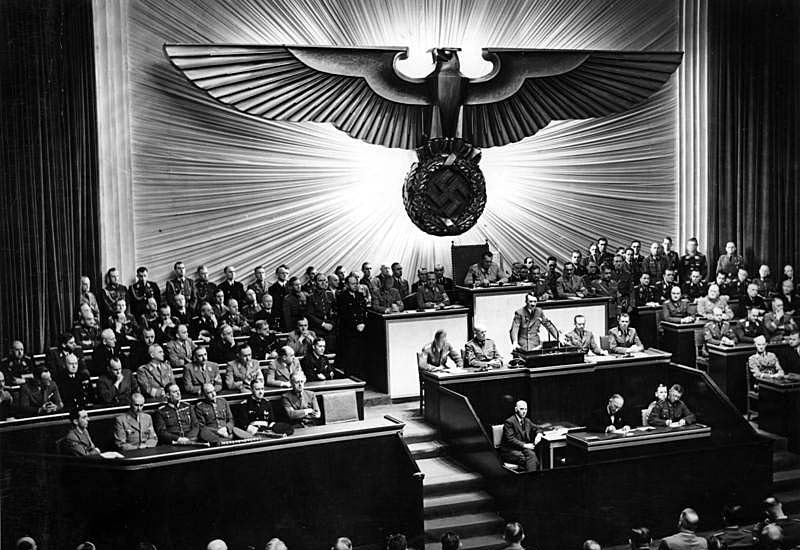 Prior to December 7, 1941, Adolph Hitler, already waging a war in Europe, had made an agreement with Japan to support their country in the event it was invaded by an outsider. It came just as much of a surprise to Hitler as to America itself, when the Japanese attacked Pearl Harbor on that day that would live in infamy. Hitler was all in favor of supporting his ally, but had never comprehended how Japan and the United States would become foes. The events of that day answered the question. Even with Japan and the U.S. at odds, Hitler was under no true obligation under the “Tripartite Pact” to enter this conflict. The agreement clearly stated that Germany’s involvement would depend on Japan being the non-aggressor.
Prior to December 7, 1941, Adolph Hitler, already waging a war in Europe, had made an agreement with Japan to support their country in the event it was invaded by an outsider. It came just as much of a surprise to Hitler as to America itself, when the Japanese attacked Pearl Harbor on that day that would live in infamy. Hitler was all in favor of supporting his ally, but had never comprehended how Japan and the United States would become foes. The events of that day answered the question. Even with Japan and the U.S. at odds, Hitler was under no true obligation under the “Tripartite Pact” to enter this conflict. The agreement clearly stated that Germany’s involvement would depend on Japan being the non-aggressor.
The Action
Never the less, on December 8th, Japan’s ambassador Oshima approached Germany’s Foreign Minister Von Ribbentrop and demanded a formal declaration of war by Hitler against the United States. While Von Ribbentrop was skeptical about entering this fray, Hitler himself had little reservations against fighting the Americans.
On December 11, 1941 at approximately 3:30 p.m. Berlin time, U.S. Secretary of State Cordell Hull was handed an official proclamation of war by Germany against the United States by the German charge d’affaires in Washington.
The Reason
Hitler thought that if he was not pro-active with this action, the U.S. would get the upper hand and declare war on Germany first. It was a fact, that the United States Navy was already engaging German U-boats in the Atlantic. Additionally, there was no love lost between Hitler and Franklin D. Roosevelt. President Roosevelt had been very vocal regarding his despising of the Nazi philosophy. Hitler also miscalculated the strength of the Japanese forces. He was sure Japan would defeat America and then aid Germany in their war against Russia. He even cited the “New Deal”, which in his mind was an economic failure, as Roosevelt’s reason to enter the war.